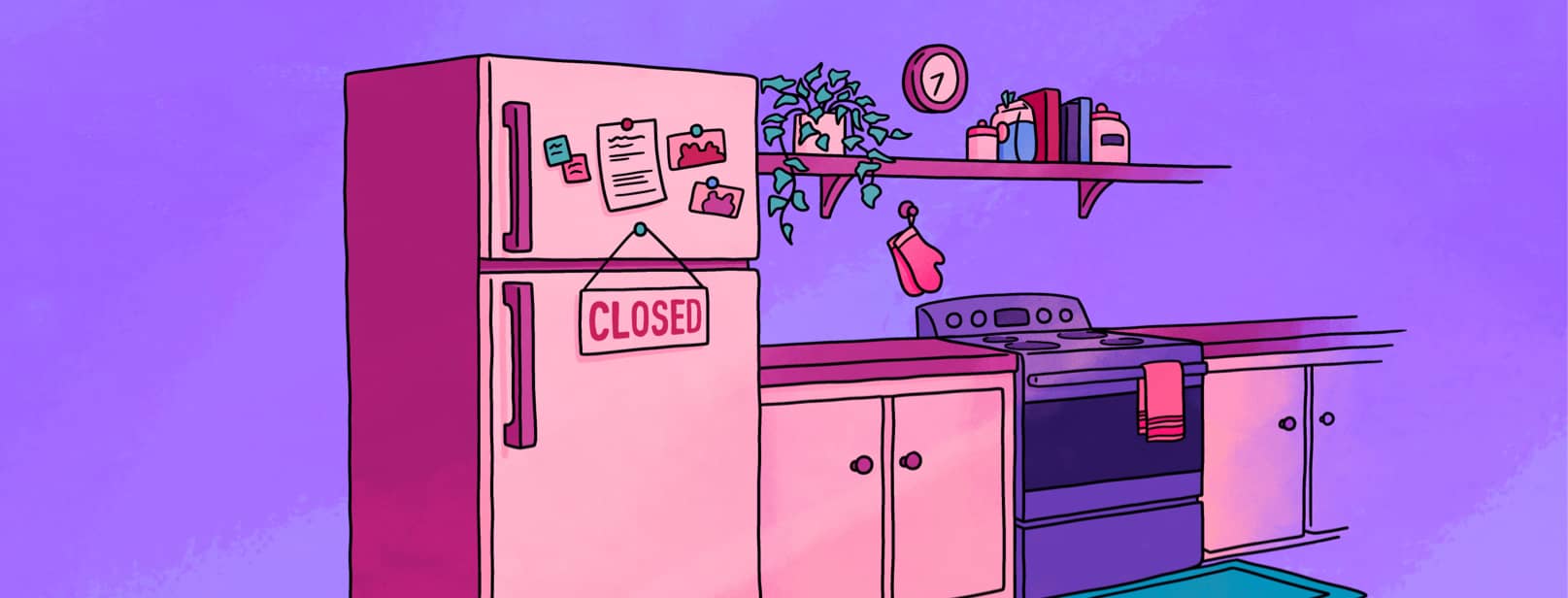What I Do When Everything Upsets My Gut
Do you ever feel like everything you do or eat results in a flare? I suppose that as IBS sufferers, most of us have been through a bad phase like this. If you’re like me, it might even happen quite regularly. In this article, I wanted to share what I do whenever a flare just won’t end, or gets triggered over and over and over again.
Going back to basics
Whenever I start feeling like everything upsets my gut, eating a very bland diet with small meals only is the first thing I do. No matter the cause of my flare, I’ll always feel a bit better with white rice and chicken instead of vegetables with sauce for a couple of days.
I focus only on very safe foods, avoid snacks or anything that isn’t 100 percent necessary in my diet, and eat the minimum amount I can to prevent myself from going hungry.
Usually, this settles my digestive system at least a little bit. If it doesn’t, I then move on to fasting (more on that below).
Working on stress-levels
Oftentimes, my severe flares are caused by anxiety rather than food. They often happen when I travel, when an event is coming up or whenever I just have too much on my plate. In these cases, I know that my gut will probably calm down once the stress eases. In the meantime, I just try to survive.
Meditation, yoga, hypnotherapy, or distractions can really help me manage my stress-levels, too. They won’t make me feel great, but I do notice an improvement whenever I try to reduce my anxiety in these ways.
Medication
I don’t use medication for my IBS-D on a regular basis. But when I just don’t seem to get out of a flare, it’s definitely worth a try. The two options I have are Smecta and Imodium.
Smecta is a widely used anti-diarrhea medication here in France, and it’s my favorite option in cases like these. Instead of completely stopping a flare (like Imodium is supposed to do), it usually just calms my intestines and until it slowly subsided by itself. For me, this is usually the better option because it prevents me from getting a new flare when the pill I took stops working.
Imodium, on the other hand, I only use it whenever I feel like my gut is just out of control. Like there’s nothing left for me to eliminate, and yet it’s incapable of calming down. Unfortunately, Imodium is pretty useless during most flares when my body needs to get rid of some trigger food I ate. In these cases, I prefer to wait it out and only take it if my symptoms don’t get better after a couple of hours.
(Intermittent) fasting
The more upset my gut is, the more it struggles with everything I eat. Therefore, I always try to give it a break to help my digestive system calm down. Depending on the situation, I either fast completely until I start feeling better, or try intermittent fasting where I basically only eat once a day at lunch time.
Both of these usually help my digestive system recover. Fasting is also the quickest way for me to feel somewhat normal again. Whenever I’m in a flare, I’m rarely hungry anyways, so not eating isn’t all that hard for me.
Questioning safe foods
I can think of 2 separate times when I had a seemingly never-ending flare that was due to a new and unrecognized trigger food. The first was when I became intolerant to pumpkin, the second was due to gluten. Both of these happened after I had my first baby, when hormones completely changed the nature of my IBS diet.
The issue with changes in triggers is that they can be so hard to pinpoint. After all, you’ve been eating these foods for a while and have never had problems. You might even be consuming them multiple times throughout the day. All of this can make it very hard to notice when a safe food suddenly turns on you.
When my pumpkin intolerance began, it only took me three tries to be absolutely sure that this particular food was the cause. I ate pumpkin soup and had terrible diarrhea all night long. I then ate (solid) pumpkin on two separate occasions, once a bit more and the second time only two bites, and my reaction was proportional to the quantity I had eaten.
With gluten, I didn’t notice anything because I was eating it for breakfast, lunch and dinner. And I was miserable all the time. When my father-in-law suggested that I cut out gluten, I didn’t believe it to be the cause of my misery at all. But lo and behold, cutting out gluten helped tremendously and I went from being miserable to feeling better than I had in months.
Going to the doctor
Sometimes, a bad flare seems to go on and on, no matter what you do. This happened to me once. It lasted for well over a month before I finally realized that this was not normal, even for me. I was losing weight, having constant diarrhea even when I didn’t eat and was overall feeling horrible.
After waiting it out for far too long, I ended up going to the doctor, only to discover that I had an infection that was causing these symptoms. I took a round of antibiotics and instantly got so much better!
This is why I always recommend getting tests done when you feel like you can’t eat at all anymore. Especially if your symptoms are different from what you’re used to with IBS. After all, having IBS does not prevent us from getting other gut issues!
Have you ever felt like everything you eat upsets your gut? If yes, what do you do in these cases?

Join the conversation